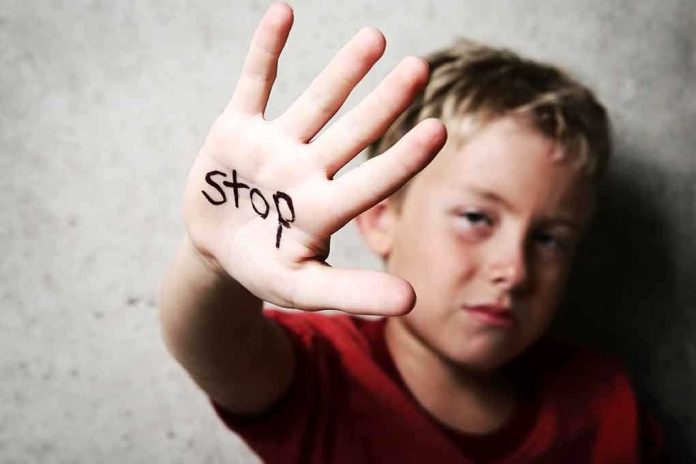
A shocking case in Indiana underscores vulnerabilities in social safety nets, as a mother allegedly exploits a nonprofit to pocket $100,000 through fraudulent medical claims.
Story Highlights
- A mother is accused of exploiting her child’s health to defraud a nonprofit of nearly $100,000.
- The child underwent unnecessary medical procedures, raising ethical and oversight concerns.
- The child’s father played a crucial role in uncovering the fraud, emphasizing family involvement in safeguarding welfare.
- The case exposes gaps in nonprofit grant oversight and medical ethics.
Allegations and Legal Proceedings
Alanna Lin Brown, a 32-year-old mother from Gas City, Indiana, has been charged with fraud and neglect after allegedly forcing her healthy toddler to undergo unnecessary medical procedures.
The intent was to exploit nonprofit grants, netting her nearly $100,000 over 22 months. The accusations include having a feeding tube inserted into her child, despite medical professionals later confirming it was unnecessary.
Brown was arrested on November 16, 2025, and released on bail. She faces charges of fraud and neglect of a dependent causing bodily injury. The upcoming court date is December 5, 2025, where she will face these serious allegations. The case has prompted discussions about the integrity of nonprofit grant systems and the necessity for stringent oversight.
The Role of the Father and Medical Professionals
The child’s father, a preschool teacher, raised concerns after observing inconsistencies in the child’s health and care. When the child stayed with him, she ate normally and gained weight, contradicting the claims made by Brown. His involvement was pivotal in uncovering the fraud, highlighting the importance of family vigilance in safeguarding children’s welfare.
Medical professionals initially diagnosed and treated the child, but later questioned the necessity of the procedures. Their concerns contributed to the legal actions taken against Brown, emphasizing the critical role of ethical medical practices in protecting vulnerable individuals.
Implications for Nonprofit Systems and Child Welfare
The fraud exploited LifeStream Services, a nonprofit organization intended to aid children and seniors with genuine medical needs. This case underscores the vulnerabilities in systems that rely heavily on parental reports without sufficient verification. It has sparked calls for reforms in nonprofit grant oversight to prevent similar incidents.
The broader community faces potential repercussions, such as increased scrutiny and reduced trust in aid programs. The story highlights the need for robust safeguards against exploitation and emphasizes the delicate balance between offering support and ensuring accountability.











